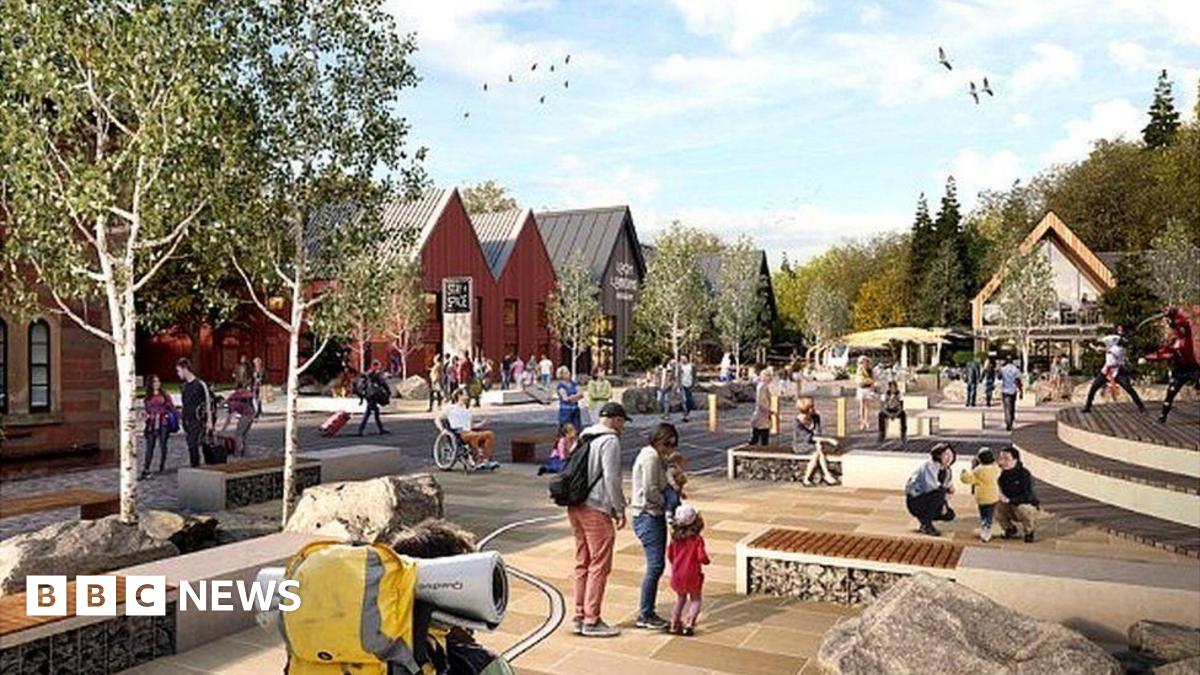World
Kate Forbes: Scotland more than punches above its weight on the industry world stage

If anything captures the last six months for me, it is the changed fortunes at Harland & Wolff.
As pupils went on summer holiday in July, news broke about the risk to jobs at the two Harland & Wolff sites in Scotland – Methil in Fife and Arnish in the Isle of Lewis. For the new Labour Government, it was one of the first tests of how they would engage with the Scottish Government.
And for me, it required regular meetings during the one week of summer holidays that I took this year – with unions, UK Government ministers and the company itself.
READ MORE: Construction begins on family-run £12 million distillery
Over the last six months, there have been various twists and turns as we worked together to secure the future of the two Scottish yards.
My priority was to ensure that the company wasn’t broken up, but that any deal or buy-out included the two Scottish yards.
Both are vital local employers in their respective regions. They’ve been through a challenging few years. And they are critical to the manufacturing sector.
As pupils again break up for the holidays, but this time for the Christmas break, there is much better news. Hundreds of jobs have been saved, as Navantia, a Spanish ship-builder, has bought the yards.
It is excellent news for the workforce and the Scottish economy. It reflects the strengths and value of Scottish manufacturing and industry.
The good news seldom makes the headlines, but in my job as Cabinet Secretary for the Economy, I have the great privilege of seeing the brilliance of Scottish talent up front.
I want to share some of my highlights with you in this last column of 2024.
Scottish Brain Sciences are headquartered in Aberdeen. When I visited, I asked them to summarise their business in one sentence.
The response? “We will cure Alzheimer’s.”
Founded by Professor Craig Ritchie and lead by neuroscience experts, they are building one of the world’s largest biobanks of data on neurodegenerative disease.
Located in the ONE BioHub in Aberdeen – itself a remarkable achievement for Scotland as a leading cluster for life sciences – this is one of the most exciting businesses on the planet and it has chosen Scotland as a launchpad.
Johnstons of Elgin is a much-loved and well-known textile business in Moray. Harris Tweed, famously connected to the Hebrides, has a long history of community empowerment and ownership.
Far from being a relic of the past, both companies featured in Dior’s catwalk show this year – returning to Scotland for the first time in 70 years.
READ MORE: Scottish textiles factory records ‘disappearing sound’ of workers
During a St Andrew’s Day event in Paris, I hosted a textile exhibition of Scottish textiles and businesses to showcase to some of the biggest names in fashion.
Cutting-edge, pioneering, beautiful and first-class quality were just some of the words dropped into conversation when describing the craft of Scottish textiles.
Everybody knows about Scotland’s incredible potential for renewable energy. Although we’ve made great strides in decarbonising our electricity network, we’ve got more gigawatts of offshore wind in the pipeline than most other countries.
But that will only be unlocked with investment in technology, supply chain and infrastructure.
And that is precisely what is happening.
In a room, 50-strong, of experts working in the field of hydrogen, there was widespread interest in the opportunities in Scotland. Many were already invested in developing green hydrogen, in particular.
From life sciences that have a direct impact on changing lives, to textiles which are being lapped up by the biggest fashion houses, to cutting-edge technology to meet net zero, Scotland more than punches its weight.
Many industries and businesses just get on with it, and making our nation proud. They prove that ingenuity, creativity and hard work combined is the recipe for success.
The coming year will inevitably hold lots of surprises.
Some of them will be tough – the ongoing consequences of war in Ukraine and the Middle East, the geopolitical instability of France, Germany and so many other countries and a new president in the US all pose an element of risk.
But Scotland has always been nimble and agile enough to adapt to these economic risks. It takes self-belief, purpose and a determination to outshine the competition. These industries show that we are more than capable.
I wish all readers a very happy Christmas and a happy, prosperous and ambitious 2025.









